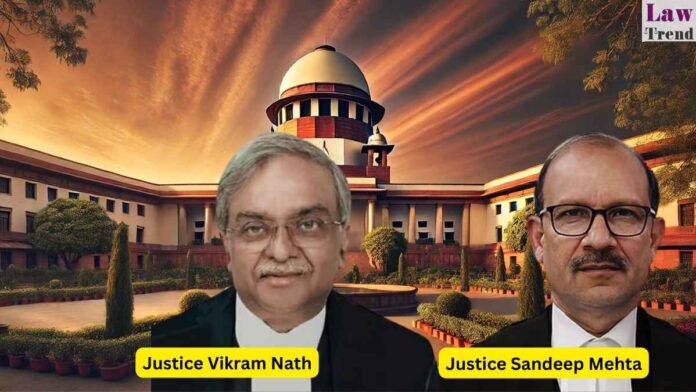The Supreme Court of India, in a significant ruling, has held that a second petition under Section 482 of the Code of Criminal Procedure (CrPC) for quashing a criminal complaint is not maintainable on grounds that were available to the accused at the time of the first petition. A bench of Justice Vikram Nath and

To Read More Please Subscribe to VIP Membership for Unlimited Access to All the Articles, Download Available Copies of Judgments/Order, Acess to Central/State Bare Acts, Advertisement Free Content, Access to More than 4000 Legal Drafts( Readymade Editable Formats of Suits, Petitions, Writs, Legal Notices, Divorce Petitions, 138 Notices, Bail Applications etc.) in Hindi and English.
Click to Subscribe
If you are already a VIP Member, Click to Login Now
READ ALSO SC seeks Centre's stand on Delhi govt plea against HC order staying notice to Rapido, Uber




